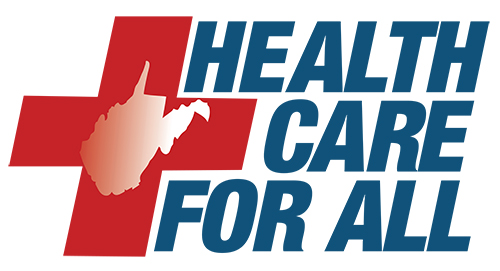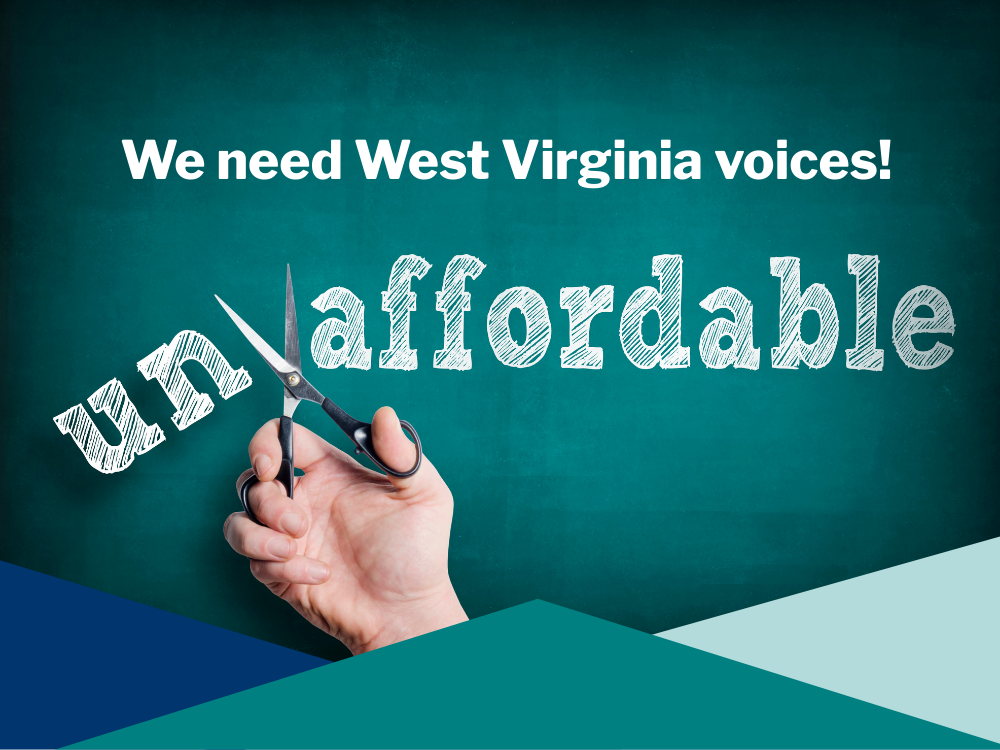- Like
- Digg
- Del
- Tumblr
- VKontakte
- Buffer
- Love This
- Odnoklassniki
- Meneame
- Blogger
- Amazon
- Yahoo Mail
- Gmail
- AOL
- Newsvine
- HackerNews
- Evernote
- MySpace
- Mail.ru
- Viadeo
- Line
- Comments
- Yummly
- SMS
- Viber
- Telegram
- Subscribe
- Skype
- Facebook Messenger
- Kakao
- LiveJournal
- Yammer
- Edgar
- Fintel
- Mix
- Instapaper
- Copy Link
Health Care and the 2021 WV Legislative Session
By: Kim Jones and Eve Marcum-Atkinson
The 2021 Legislative Session will be extremely important for the people of West Virginia, and protecting and expanding health care coverage will be a significant part of our agenda.
Health Care for All WV will be pushing three important legislative issues, during the current legislative session, that seek to:
- Expand Medicaid coverage to one year postpartum for women up to 300% of the Federal Poverty Level;
- Create a New Choice health insurance program to provide adult West Virginians with an additional affordable, quality plan option; and
- Provide better coverage for out-of-pocket prescription drug costs.
Find out more about Health Care for All WV’s 2021 Legislative Agenda here.
In the 2020 Legislative Session, we made great strides towards making insulin more affordable for the people of our state. Because of the hard work of our team and hundreds of West Virginians, we became one of the first states to address the inflated and unethical price of insulin. A bipartisan group of delegates championed and passed HB 4543, which capped copays for insulin at $100 a month.
This year, Delegates Barbara Fleischauer and Matt Rohrbach are co-sponsoring another bipartisan bill to lower the copays on insulin to $25 a month, and lower copays on supplies and equipment to $25 a month. In West Virginia, the median per capita income is $27,446. Paying hundreds of dollars a month for medication and supplies can be financially crippling to our families.
We are excited to take another step towards helping the families of many of West Virginia’s 240,000 diabetics live better and healthier lives by not having so much of their incomes lost to health care prices.
Lastly, we want to mention the proposed elimination of state personal income tax: it represents 43 percent of the General Fund, $1.97 billion of this fiscal year’s base budget. These revenues account for nearly half of those used to fund numerous basic services provided by WV state agencies, such as the Division of Health and Human Services, Medicaid, and other safety net programs. Even if the tax is not completely eliminated, any tax cuts will reduce state revenue that could otherwise be invested in vital services.
As of October of 2019, according to the Kaiser Family Foundation, 36% of West Virginians are low-income, and 28% are covered by Medicaid/CHIP. One in four adults are covered by Medicaid, and 48% of them are working. One in two children are covered by Medicaid.
In their 2021 Agenda, Health Care for All WV says, “We must acknowledge that Medicaid is a critical health care safety net for a third of West Virginians. The COVID-19 crisis has driven home the value of the Medicaid program for our state. Indeed, with its flexibility to adapt to emergencies and meet new health services demands, it has been the single most critical tool in our state’s response to the pandemic. If West Virginia reduces spending on Medicaid and forces cuts to essential benefits or eligibility, we will hurt not only families who rely on Medicaid to help them face physical and financial health hurdles, but also our rural hospitals and state economy.”



